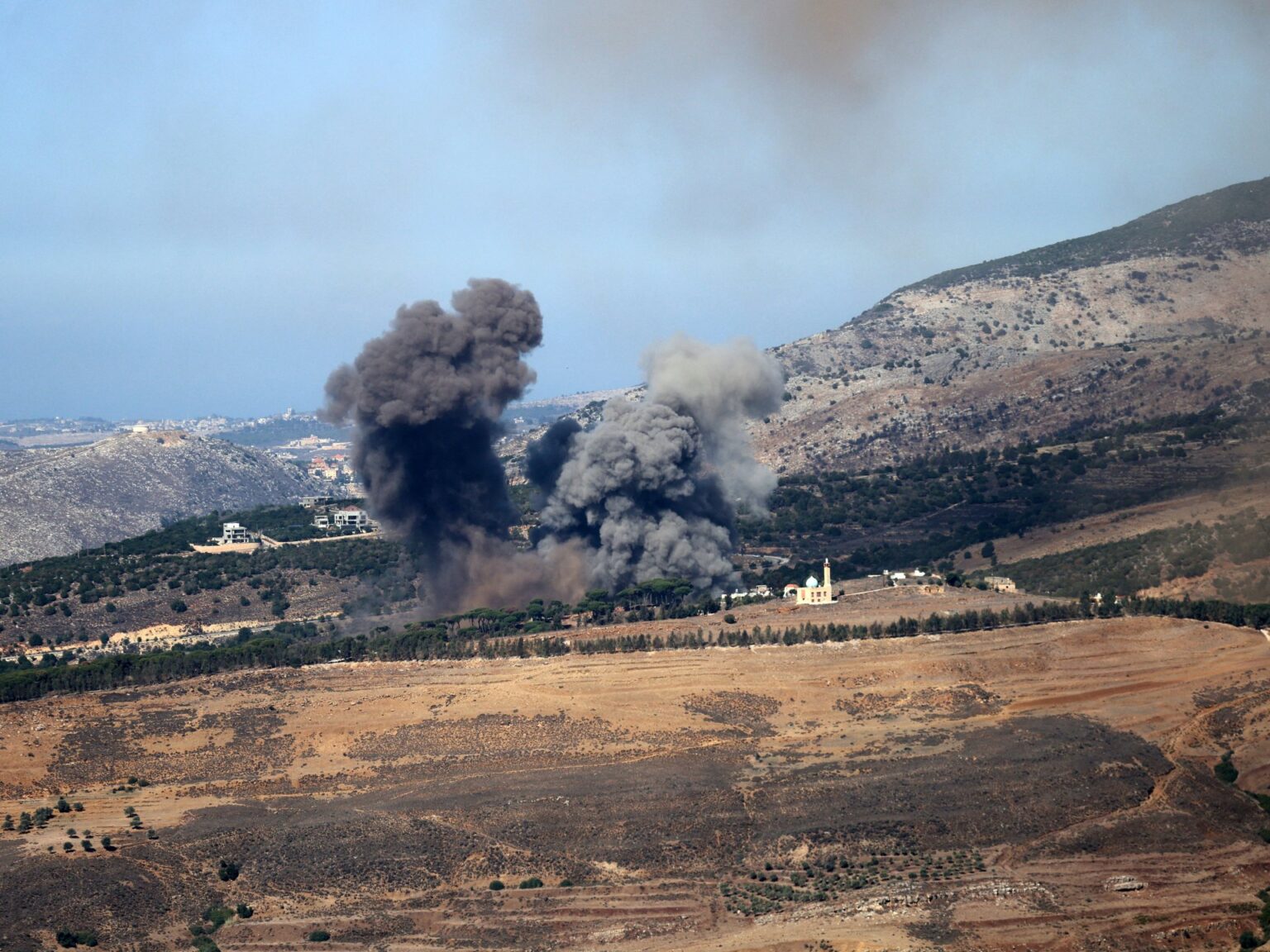Lebanese President Joseph Aoun has instructed the armed forces to confront any further Israeli incursion in the country’s south after Israeli forces crossed their shared border and killed a municipal worker during an overnight raid.
The pivotal announcement was made on Thursday after days of Israeli attacks on Lebanese territory in near-daily Israeli violations of a ceasefire that went into effect in November.
Recommended Stories
list of 4 itemsend of list
The Lebanese forces, unlike the armed group Hezbollah, have generally stayed on the sidelines of the conflict with Israel. But Aoun, a former commander of the Lebanese army, appears to have finally lost his patience with the Israeli-forced status quo.
Aoun ordered the army to “confront any Israeli incursion into liberated southern territory, in defence of Lebanese territory and the safety of citizens”, during a meeting with Brigadier General Rodolphe Haykal, according to a statement from the presidency.
The order came just hours after Israeli soldiers entered the border town of Blida and stormed the town hall, killing municipal worker Ibrahim Salameh, who had been sleeping there, the state-owned National News Agency (NNA) reported.
مراسلة «الأخبار»: استشهاد موظف بلدية بليدا، إبراهيم سلامة، برصاص قوة إسرائيلية توغلت فجر اليوم لأكثر من ألف متر داخل الأراضي اللبنانية واقتحمت مركز البلدية، حيث كان يبيت في إحدى غرفه. بقيت القوة داخل المبنى نحو ساعتين وأطلقت عدة رشقات نارية أصابت سلامة، وألحقت أضراراً في جدران… pic.twitter.com/63BsFGxisx
— جريدة الأخبار – Al-Akhbar (@AlakhbarNews) October 30, 2025
Translation: Al-Akhbar report: Martyrdom of Blida Municipality employee Ibrahim Salameh by gunfire from an Israeli force that infiltrated more than a thousand metres [0.6 miles] into Lebanese territory at dawn today and stormed the municipality centre, where he was staying overnight in one of its rooms. The force remained inside the building for about two hours and fired several bursts of gunfire that struck Salameh, causing damage to the centre’s walls and contents.
Village residents quoted by NNA said the raid lasted several hours and Israeli forces withdrew at dawn.
The Israeli military confirmed its forces had operated in Blida overnight, saying they opened fire after identifying “an immediate threat” during an operation to destroy infrastructure held by Hezbollah but did not provide evidence. The incident was under review, it added.
It was not immediately clear whether Salameh had been deliberately targeted and, if so, why he would be.
Aoun condemned the attack as part of a pattern of Israeli aggression and said it was launched shortly after a meeting of the committee monitoring the cessation of hostilities.
He urged the committee to go beyond recording violations and to press Israel to abide by the November 27 ceasefire and halt its breaches of Lebanese sovereignty.
Prime Minister Nawaf Salam condemned the incursion as “a blatant attack on the institutions and sovereignty of the Lebanese state”.
Lebanon’s army has deployed to the area but did not provide details of the operation. The United Nations peacekeeping force in southern Lebanon said it was seeking more information on the incident.
Hezbollah back Lebanese army
Aoun’s orders for the army to confront Israeli incursions have been welcomed by Hezbollah, which said it urged full support for the army.
Hezbollah, created during the Israeli invasion of Lebanon in 1982 and occupation of the south, has been the main regional resistance to Israel in the last few decades, harrying Israel out of Lebanon in 2000, fighting a 2006 war to a deadlock but then suffering huge losses in the hostilities that began in 2023 and the subsequent war that saw its top leaders killed.
The NNA also reported that Israeli forces carried out air strikes on the areas of Mahmoudiyeh and Jarmak in southern Lebanon. No information was immediately available regarding the casualties or damage inflicted. The Israeli military issued a statement saying it targeted Hezbollah infrastructure.
Meanwhile, in the capital, Beirut, residents heard the loud buzz of an Israeli Hermes 450 drone, used for surveillance but also capable of carrying multiple deadly payloads.
Israel’s violations of the airspace above Beirut are common and over the past week have become an almost daily occurrence.
Israel has repeatedly bombarded Lebanon, violating the November ceasefire that sought to end more than a year of hostilities that escalated into months of full-blown war with Hezbollah. In October alone, Israeli strikes have killed more than 20 people in Lebanon, according to the country’s Ministry of Public Health.
As part of last year’s ceasefire, Israeli troops were to withdraw from southern Lebanon and Hezbollah was to pull back north of the Litani River and dismantle any military infrastructure in the south.
According to the agreement, only the Lebanese army and UN peacekeepers are to be deployed in southern Lebanon, but Israel still occupies five positions in southern Lebanon.
Under pressure from the United States and fearing an escalation of Israeli strikes, the Lebanese government has moved to begin disarming Hezbollah, which has said it will not lay down its weapons.
Lebanese officials believe Israel’s near-daily strikes aim to prevent any reconstruction in the war-ravaged south.
Israel’s attacks around the Middle East haven’t ceased with the recent ceasefire in Gaza, which itself continues to be bombarded by the Israeli military.
Lebanon, Syria and the occupied West Bank have all witnessed Israeli strikes in the past week, giving credence to the idea that Israel is trying to keep its neighbours destabilised and weak, analysts say.
https://www.aljazeera.com/news/2025/10/30/lebanons-aoun-says-army-to-confront-israeli-forces-after-deadly-incursion?traffic_source=rss


